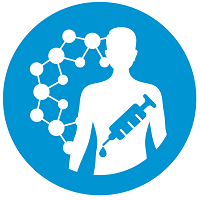Preclinical, Clinical, and Translational Sciences
Symposium: Translational Development of Cell and Gene Therapies
CAR-T Cell Therapy in Autoimmune Diseases: Clinical Pharmacology and Dosing Considerations
Wednesday, November 12, 2025
9:30 AM - 10:00 AM CT
Location: 225 CD

Fei Tang, PharmD, PhD (she/her/hers)
Principal Scientist
Genentech, Inc.
South San Francisco, California
Speaker(s)
Allogeneic cell therapies have emerged as promising interventions for autoimmune diseases such as systemic lupus erythematosus (SLE), multiple sclerosis (MS), and rheumatoid arthritis (RA). Unlike conventional immunosuppressants that provide only transient disease control, allogeneic CAR-T therapies aim to restore immunologic tolerance by rebooting dysregulated immune networks (ie, immune “reset” due to rapid and complete depletion of autoreactive lymphocytes followed by repletion of naïve lymphocytes), leading to durable remission. Cell Therapies may better achieve immune reset compared to mAbs due to the ability to migrate into deep tissue compartments that are less accessible to antibodies, and because they directly kill target cells without the need to engage other elements of the immune system (eg, ADCC, CDC, or T-cell engagement).
This presentation will first give an overview of the use of CAR-T therapies in autoimmune diseases, including the mechanism of action and available clinical experiences, followed by clinical pharmacology considerations and assessments, including dosing considerations for CAR-T and lymphodepletion regimen in autoimmune diseases leveraging data from completed and ongoing clinical studies.
This presentation will first give an overview of the use of CAR-T therapies in autoimmune diseases, including the mechanism of action and available clinical experiences, followed by clinical pharmacology considerations and assessments, including dosing considerations for CAR-T and lymphodepletion regimen in autoimmune diseases leveraging data from completed and ongoing clinical studies.
Learning Objectives:
- Upon completion, participants will be able to understand the clinical pharmacology considerations in designing first-in-human studies with CAR-T therapies
- Upon completion, participants will be able to describe clinical pharmacology assessments in the development of CAR-T therapies
- Upon completion, participants will be able to understand dosing considerations of CAR-T and lymphodepletion regimen in autoimmune diseases leveraging existing clinical experiences

